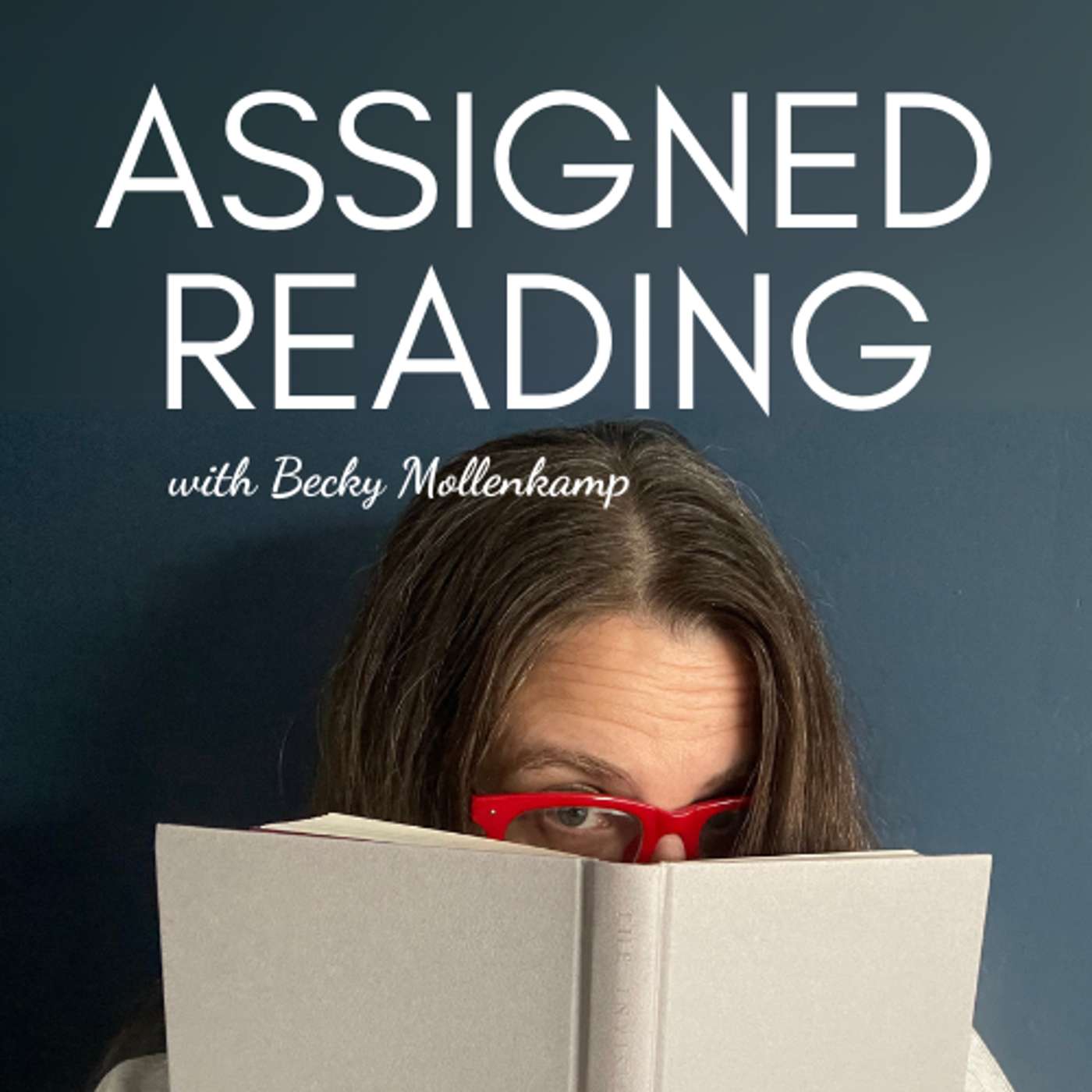
Mindset Unlimited: Tips, Tools, and Inspiration for Women in a Time of Change
Your Mindset Unlimited is a podcast for women navigating professional and life transitions who are seeking to release learned limitations and build a more holistic, liberatory version of success.
Your Host, Valerie Friedlander, is an ICF certified coach, sociologist, intersectional feminist, artist, business owner, and mom. Based in Chicago and supporting clients world-wide, she helps high-achieving women transition into their next chapter of life with clarity, confidence, and self-compassion. lead with intention, and create their definition of success that honors all aspects of their life.
In this podcast you'll find tips, tools, and inspiration to help you release the internalized limitations cultivated by our social system imbalances and lead your life with more ease and joy.
Some of the topics you'll find here are: finding fulfillment, habit shifting, motivation, time management, money mindset, stress management, impostor syndrome, productivity, work/life balance, communication, boundaries, leadership, social activism, burnout, building a business, motherhood, and more.
You can find out about Valerie and her work at www.valeriefriedlander.com
Follow her on most social media @unlimitedcoachval
Sign up for her email list at www.valeriefriedlander.com/signup
Books referenced on the podcast can be found on Bookshop.org
https://bookshop.org/lists/unlimited-podcast-book-recommendations
Mindset Unlimited: Tips, Tools, and Inspiration for Women in a Time of Change
3 Essentials to Maximize Your Experience at an Event
Use Left/Right to seek, Home/End to jump to start or end. Hold shift to jump forward or backward.
“Three Essentials to Maximize Your Experience at an Event” provides a strategy to keep your planning simple and ensure you get the most out of your investment of time, money, and energy. Some of the obstacles to event ROI include overwhelm, self-doubt, shiny object, peer pressure, FOMO, and other such distractions. Additionally, the so called “mom guilt” is a common struggle for high-achieving women with children at home. With these kinds of challenges, you need something simple to support both strategic pre-event planning and at event discernment.
In this episode I explore the 3 essentials to maximize your experience at an event whether it’s a professional conference or personal development retreat.
Some of what I’ll cover in this episode include:
- Exploring the relationship between your values and the event
- Preparing for an event with priorities and boundaries
- Planning supports and follow up during and after the event
- Creating accountability systems
Thank you for listening! If you enjoyed this episode, take a screenshot of the episode to post in your stories and tag me! @unlimitedcoachval
I love to hear your thoughts and I'm always happy to answer any questions.
You can send me a message through the "text me" link on your listening platform, shoot
me an email at valerie@valeriefriedlander.com, or DM me on Instagram
LINKS FROM THIS EPISODE:
How to Stop Reacting and Start Responding (an episode on values, plus “mom guilt”)
Shift from Drained to Motivated (an episode on values)
Silencing Your Inner Critic
How to Get the Most Value at an Event Workbook (on my resource page)
One time coaching session
Exploration call
CONNECT WITH VALERIE:
Facebook
Instagram
Get email updates!
Work with Valerie!
Hello, my friends, and welcome to another episode of unlimited today, we are talking about three essentials to maximize your experience at an event, and this is whether it is a business event or a conference or whether it is a retreat or a self care experience. These tips are designed to help you focus and stay centered and support yourself so that you are getting what you signed up to get at least as much as you have power over that at an event, I created this framework several years ago when I was asked to put it together for a retreat for women who are moms and in business. Some of the things that were coming up for folks is that they were feeling FOMO, there was guilt leaving their children. There was overwhelm. A lot of introverts wanting to get as much as they could out of this event, this experience, but also getting overwhelmed by all the people. So I was asked to put this together to help everybody focus and be able to really enjoy being there and get what they came to get out of the experience. So this is what I put together. It is focused on the three things I think are most important. One is your values. And this ties to what you want to get out of the event, why you signed up for it in the first place, or if you're trying to figure out what kind of event to sign up for, it can help you focus on what that is. So what your values are, what you want, what your priorities are. The second part is boundaries, and this creates that container to support what you're there to get. So how you want to show up as well as what you want out of the event. So what do you need to support you showing up and obtaining why you're there in the first place? This is not to say that you're going to stay within your comfort zone. This is how do you stretch your comfort zone to the place that you want to stretch without tearing so maybe it's self care things. It's also recognizing what sabotages you and creating a support system for that. And along those lines, that third essential is support or accountability. It particularly helps, especially when we're talking about a social situation, to have other person or people accountability. Because when you're in social situations, especially if you tend to kind of go with the crowd or get pulled along or get overwhelmed and kind of freeze and do the things or not do the things, to have another person or people who can help you stay true to what you said you wanted, that can really make a powerful difference. But barring that, also setting up structures for yourself, knowing what tends to sabotage you, knowing what you tend to get shiny object about, having that awareness of previous experiences, or just of yourself, if you haven't had previous experiences, what you can put into place. Maybe it's a little alarm on your phone. Maybe it's a note in your notebook or a background screen on your phone, something that can help you stay true to what you say you want, or at least to check in, because you can always change your mind. You can always go, You know what? I realize that this is different. So this isn't about being rigid. It's about being supportive, having that container for what's important. So I have a whole little outline for you. I also created a worksheet related to this for that event that I am going to share with you in my email so if you are not on my email list, I encourage you to sign up and get access to that. I always send something out about a week after the podcast episode. That way, if you listened to this a little bit later, you can access it. So go sign up for that if you are not on there already. If this is something you want support with, I do offer a one off coaching session. If that's something that you're interested in, if you're like I don't necessarily need a whole coaching package, but I really want to dig in and have a focus time to get some discernment and create some structures and support and a plan for myself. Then you can sign up for a one off coaching session, and there is a link in the show notes for that if you are interested. In more long term coaching, to really engage some of the habits and patterns that aren't serving you, or maximize the ones that are, for that matter, then I encourage you to sign up for an exploration call. That's a free call, because especially if you're going to sign up for a package, we want to make sure that I'm a good fit for you, that we really engage what that would look like, because it's unique for everybody. While I do have a particular system that I work with people through, it is not a rigid situation, because everybody is unique, and there is not a one size fits all. When it comes to your life, it is yours. So if you are looking for more in depth support, I encourage you to sign up for an exploration call. All the links are in the show notes, and now, without further ado, let's get started. Hey there. I'm Valerie Friedlander, Certified Life business alignment coach, and this is unlimited. This podcast bridges the individual and the societal, scientific and spiritual, positive and negative, nerdy and no, there's just a lot of nerdy come on board. And let's unlock a light that's as badass as you are. The first and most important, foundational essential to maximizing your experience at an event is your values. Your values influence what you want, why you would pick this retreat in the first place or event, or whatever it is. So really, knowing what those values are is key. It also has to do with why you might feel some tension around going in the first place. So knowing what's important to you why this event, and then why that so sometimes digging in a little bit deeper, asking why a couple more times to get underneath the initial, obvious reason, but why that reason is the reason, and dig in a little Bit the three common reasons have to do with connecting, whether it's connecting with a particular person that you're going with, connecting with people like networking. Another one is learning, so what you're going to learn at that event, and the third one is experiencing, so what you were hoping to experience at the event, or it could be all three of those things, but that's just one layer of values. It can help with this exploration to really look at what are your core values, what's important to you? So to do a values exercise, and I have a couple podcast episodes that dig specifically into values. But, you know, exploring things like being present, connected, active community, personal growth, those sorts of things to explore what's important to you, just generally. And then look at how is this retreat honoring those values. So take it outside of the retreat, and then bring it back to the retreat. This could be a way of picking a retreat. So if you're looking for something, and I keep saying retreat, because I made this originally for something that was called a retreat, but event, conference, whatever, how is this experience, this event that you're going to honoring your core values. Is it tapping into other values? Perhaps that are important to you also, but looking at, how is it honoring each of those? And then maybe look at how do those values maybe feel challenged. One that came up a lot, as I mentioned when I made this was family. I'm gonna leave my family to go to this. And so that might be a value that feels challenged. We're not judging our values. We're not saying that they're right or wrong, or anything about social programming that can be there. But right now we're just looking at what our experience is. So taking a look at in what way do your values feel challenged by this event, and then what could you do to address or mitigate those challenges? Likely, in this particular case, you've already decided you're going to go to this so that decision has already been made. Now could you make a different decision? Yes, is that what you're trying to do? Not necessarily. It may be okay. It's time to think outside the box. It's time to think creatively. Once you pull forward one. What conflicts you may have, because those conflicts can add tension, and that tension can make it hard to stay present and focused and get the most out of your experience being in the space that you're in. So taking a look at what is being honored by this, what might be threatened by this, and identifying those can at least bring them forward so that you are clear on the choices that you're making. And it can also be a way to consciously go, Okay, well, I know that this is being threatened, so here's how I'm going to make sure that I'm taking care of this, that I'm honoring this maybe it's just a different way of thinking about it. So again, going back to that idea of family, I'm going to this event to focus on me and my needs and rejuvenate myself. I'm going to this event to be able to make the connections to build a business that's in alignment with what I want to create in the world, and that will allow me to show up better in my home life, whatever it is. So sometimes it's just thinking about it differently, and sometimes it's logistical. You could say, Okay, well, these things feel threatened or challenged, so I'm going to have these conversations to make sure that the things that I'm worried about leaving behind or putting down for a time are cared for. This can also invite a reflection on what is yours and what is not yours to control. Are you trying to manage someone else's feelings, perception, experience and if that's the case, that may be another layer to explore. We're not going to dive deep into that right now, but if that is something that you're like, well, please dig into that a little bit more, then let me know, and I'm happy to do that. We can always do that privately. If you want to hop on a call, if it's something you want me to engage in the podcast, then you can always drop me a message, either through the little link in the show notes, or send me an email. But noticing that is important, whether you have tools even yet to deal with it, even just bringing it forward. One of the places where we get overwhelmed is when information is missing, when we have this feeling about something and we haven't made it tangible. So whether this has to do with your values and what you're trying to control or not control, and what's yours and not yours, etc, or whether it is even making a decision about what you need at this conference. If you feel a sense of overwhelm, it might not just be the thing itself, like, Ooh, I don't like being around that many people. That feels stressful. Maybe it's well, how many people usually show up? So if we can look at what information you're missing, then you have the knowledge to be able to go find out that information. And even if you can't find out that information, if you know that you are missing that information, and that is what is activating some stress for you. That is what might be conflicting with a value like the unknown of this situation could be, ooh, there could be danger here, because this might conflict with a value that I have when you know that, then you can create supports for yourself around that, whether or not You have the actual information. So this is what leads into boundaries, what kind of supports you need. So considering, what do you want out of the event? What are your priorities? And that might be, again, connecting with other people. Maybe it's a particular person you're hoping to connect with. Maybe it's a particular piece of information, maybe it's a particular aspect of the event, whatever it is really knowing what are your priorities in this event experience, and then also how you want to show up. Some things might come up of curious, open, present, engaged, focused. Those are some that often come up when people are talking about going to an event. Then knowing what will support you. So you could consider, what is the information that I'm missing? So what do I need to make sure that I'm cared for, regardless of what the answer to that question that I don't have the answer to yet is? So maybe it's like, how many people are going to be there? It could be a lot of people. So what are the supports that I can put into place? If it is a lot of people? People, sometimes you'll be able to find answers in like a schedule or even reaching out to the event planner to gather more information. But sometimes we don't necessarily know. So maybe it's around food. Maybe I don't know if they're going to have food that's going to be what I need, so I will bring some snacks. I'm going to make sure that I have a water bottle with me. So what are those kinds of things that you're going to need support around that you want to make sure that if you don't have information about this, that you're creating space for you to get what you need, regardless, some other aspects of self care can be the amount of sleep that you are going to get. So if you're someone that I know that I want to show up with those openness focused and I know that when I don't get enough sleep, I struggle to do that it might be well. I want to be able to go out and network with people after the event, or the official part of the event is over, and that's the important part to me. So I'm going to sleep in, and I might miss some of the opening segments of the next day. Or it could be, I know that I would need to go to bed early, that that's important to me, because I know I want to make it to these training sessions or this informational experience, so I'm going to rest, or maybe you take a nap. I whatever it is, so knowing what's important to you and what you need to be able to honor that, and that means creating those boundaries. So to be able to stay open and curious and present, I need to have these things in place. I know that I get hangry, and so my survival mode is going to kick in. So I need my snacks, so that way I don't get hangry if we don't have time to eat, or they don't have food that I like, or whatever it is. It could also be, hey, I struggle to process quickly, and I know that this is going to be a lot of fast paced stuff, so I'm going to only go to three parts of this event, or I'm going to ask if I can record the training to review later, or I'm going to team up with somebody and do some collaborative note taking, see if I can get the slides later. Maybe the presenter that I really want to hear from has a podcast, or was on a podcast, and I can listen to that ahead of time, so that I'm kind of already familiar with what they're going to talk about, and I can pre plan the questions that I'm going to ask in this session. There's a lot of kind of advanced thinking that you can do, but also it's important to remember the post thinking, right? So knowing that what do you need to do to recover from the event? So planning for that as well. So many people who have been to events go right back into work instead of giving themselves a buffer for that experience. Takes a lot of energy to go to event, even if you're an extrovert, it still takes a lot of energy, because it's outside of your norm, especially if you're stretching your comfort zone at all that takes energy so preparing to have a little recovery space, to have a little collect your brain, collect your notes, review, follow up those sorts of things, giving yourself room for that, which also highlights that the event itself isn't your only opportunity. So it may be that, say, networking is why you're there, and that's what's important, but you know you're going to need a little extra sleep. You know that you get overwhelmed by a lot of people, and you're not sure how many people are there. So that can help you focus on okay, I want to make sure that I connect with maybe it's certain people, maybe it's people who are attending a particular workshop, whatever it is, I am going to make sure that I'm focused on building that connection, that introduction, and then setting up time to dive deeper with that person later. So rather than trying to get it all in right, then I'm going to make sure that I'm connecting and preparing to follow up later, so I'm building in space after the event to follow up later. Again, if you know that it's going to be hard to process, maybe because that type of environment is hard to take everything in preparing to review. View your notes later, or catch up with the person that you did collaborative note taking with, and compare notes later. So not everything has to happen at that event. So that kind of goes back to what's important about this event, and remembering that. Okay, what can you only get at the event. How do you want to show up, and what do you need to be able to do that? So those boundaries, and then what can allow you to make the most out of what you can only get at this event, and then build on that in what you can do later? So this is planning for having those boundaries, knowing that there are options. And I think that's kind of a core piece of all of this, is that you have options, and when you think about what your needs are, what your purpose is, then you can focus how you engage the event experience and how you want to engage that after the fact, what are you getting out of it? Now, of course, if you're going to this and it maybe it's not a business thing, maybe it is a self care thing. Maybe it is a personal development thing that may mean that you engage it a little bit differently, so you're showing up for connections, and maybe the focus is on caring for yourself, but you know that there are things you're going to want to take away later. So I know a lot of people go to events, and they do stuff around mindset, and it sounds all great while you're there, and then you get out of there and you're in the situation where all of your norms are present. It's really hard to take the vibe, that vibration that you get in the event experience back home with you. So if that's something that you know you're going to want to take some of this may be what's different in the event space versus in your home space. Where are those conflicts that you're going to want to engage. How do I pull this into my home space? Or what are the places that have tension in my home space where the friction piece is there? So that way you can make some adjustments, or think about what is different when you're in the space so that you can take it with you, or at least notice when you're home where you're getting stuck, so that you can do that work. So all of this leads us to that last piece, which is accountability, if you can really helps, especially if we're talking about social dynamics, especially if you're someone who maybe gets shiny object or kind of carries along with the crowd, or even just gets distracted and forgets why you were there, what the focus is, or maybe you don't notice. I know a lot of people kind of the time blindness, the forget about food, who can kind of give you a nudge and be like, Hey, you might want to eat your snack. This is about that time you said you wanted to do the thing. Or, Hey, I know that you are coming. You seem to be coming with us to go out, but you said you were going to get up early and you needed to be getting sleep. So what is it that you really want to do in this situation, like helping you check in so accountability isn't saying, No, don't do that, or you're not allowed, or you said you didn't want to. It's just being a check in point, someone who can help hold the space of what's important for you, and it's great if you can do that for each other to share. This is why I'm here. This is what's important to me. These are the things that I put into place for that the boundaries that I've set. Would you support me in this? Would you give me this reminder? Would you check in with me here and kind of be that buddy system that can be really helpful? Again, as I mentioned earlier, if you can't do that, maybe you're going on your own. You haven't met anybody. It can be maybe putting something on your phone to help you remember, or maybe it is a check in with somebody at home. Maybe you have a friend that you can reach out to, that you have a little reminder, pop up, call this friend and check in and let them know how things are going, and they can, even though they're not there, help you remember why you're there, remember what your needs are, and check into what will be most supportive for you and honor your purpose in being there best. So as a kind of short recap, check in with your values. How is this retreat or conference or event honoring your values and your purpose in being there? So we're thinking intention setting right like, what is that about? How is this honoring that? What way do any of your values feel challenged so you can engage those pieces of tension so hopefully they're less distracting as you go about your experience being there. What could you do to address or mitigate those challenges? And again, it could simply be having awareness that you're choosing this priority in this way right now and knowing later I'm going to choose this priority in this way then, so that when you feel that guilt or that pull that tension come up, you can remind yourself, oh, remember, I am going to do this to honor this at this time, so it has a place, and it's not just like you're ignoring it. What needs to happen at this event, to honor your values, to get the most out of your time and money and energy. Again, think about that intention for how you want to engage the experience, the goals for what you want to get out of it and what will support you in doing that. So to that point, what tends to distract you? We talked about guilt and addressing that distraction. Maybe it's people pleasing that could also be it shiny objects. We mentioned that, what are those things that distract you? Again, with guilt, ID, the values involved, choose, get creative. Maybe there's fear, those unknown pieces of information. So identify what the fear is. Maybe it's related to rejection, you know, give that inner critic as it were, a name, tell it what you would tell a stranger that would say that to you, and then give yourself what would actually be more helpful? What do you actually want to believe? And if you believed that, what would you do? What will support you and help you feel safe in that? So that's a little bit more in depth. I do have an episode that talks about inner critic, so I'll link that in the show notes. But that can be one that comes up to that idea of like, I want to feel confident that can be difficult if you have stuff around groups of people, shiny objects, as I mentioned, what will you do so that you can remember what and why you were interested in being there or interested in this shiny object, and then maybe It's come back to it later. So as I mentioned, you could plan that later I'm going to come back to that. So this is a thing that's interesting me, and you could go back to that. Why? Oh, I really want to do that. I really want to attend that. I really want to go to that happy hour. Why? Why? Why? Dig deeper? Is there a way to honor that that might not be that thing that would keep you from honoring the structure that you've put into place to support yourself? So is there another way that you could honor whatever that why is, or maybe when you dug in, you realize, Oh, I already am. I don't need to do that. That was just a shiny object. And what can you put into place? Maybe it's presetting those boundaries that will help you stay focused on your priorities and being there. And maybe it's staying accountable. What can help you stay accountable to the reason that you're there and how you want to show up. Like I said, I do have a little worksheet that I will make available if you are on my email list. I'm going to send it out with my newsletter a week from the release of this if you're checking this out and it is after that, you can also send me an email and say, Hey, could you send me that sheet? And I'm happy to do that. So all the links are in the show notes. I hope this was helpful for you heading into any kind of summer conferences or activities that you have, and I will talk to you all next time. Thanks for listening. I so appreciate you being here. If you got something out of today's episode, please share it, leave me a review, take a screenshot and post it on social with a shout out to me, send it to a friend or, you know, all of the above. Want to hang out more, join me on Instagram, or better yet, get on my mailing list to make sure you don't miss out on anything, and remember your possibilities are as unlimited as you are. Allow yourself. To shine, my friend, the world needs your light. See you next time you.
Podcasts we love
Check out these other fine podcasts recommended by us, not an algorithm.
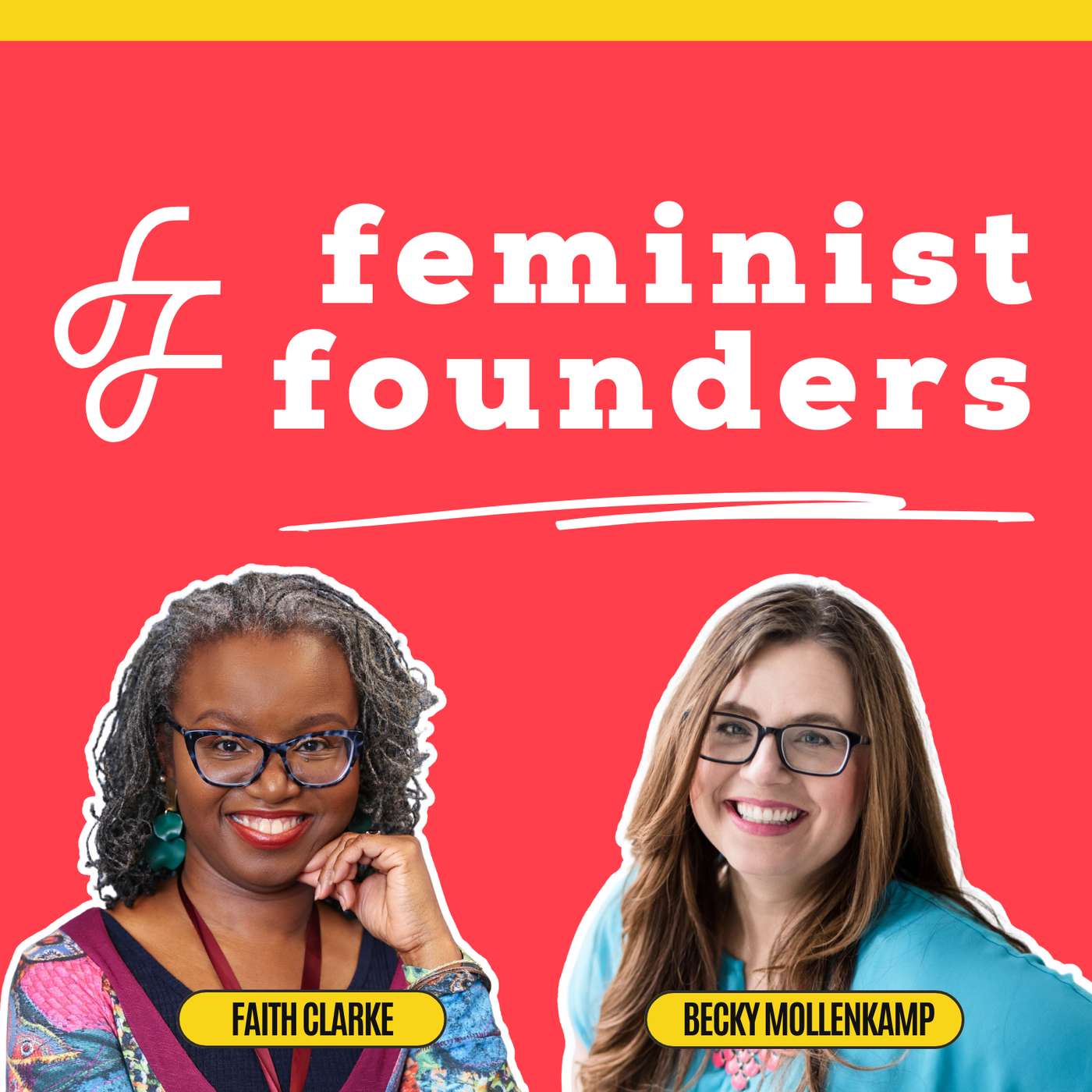
Feminist Founders: Building Profitable People-First Businesses
Becky Mollenkamp
Women Making Moves
Amy Pons
Queer News
E3 Radio
Nonprofit Mission: Impact
Carol Hamilton
Small But Mighty Agency: How to Grow Your Agency
Audrey Joy Kwan | Growth Strategist for Agencies
Disrupt Your Money
Meg K. Wheeler
Small Business Casual
Emily Aborn
Not Too Productive
Becca Rich
Messy Liberation: Feminist Conversations about Politics and Pop Culture
Becky Mollenkamp and Taina Brown
Empowered & Embodied Show
Kim Romain & Louise Neil
The Air We Breathe: Finding Well-Being That Works for You
Heather Sayers Lehman, MS, NBC-HWC, NASM-CPT, CSCS, CIEC, CWP
Careers at the End of the World: Reimagining Ambition, Work, and Your Job Search in Unprecedented Times
Jenn Walker Wall | Work Wonders Careers
The Passionistas Project Podcast
Pop Culture Passionistas
Humaning: The Shit We Need to Talk About
Steff Gallante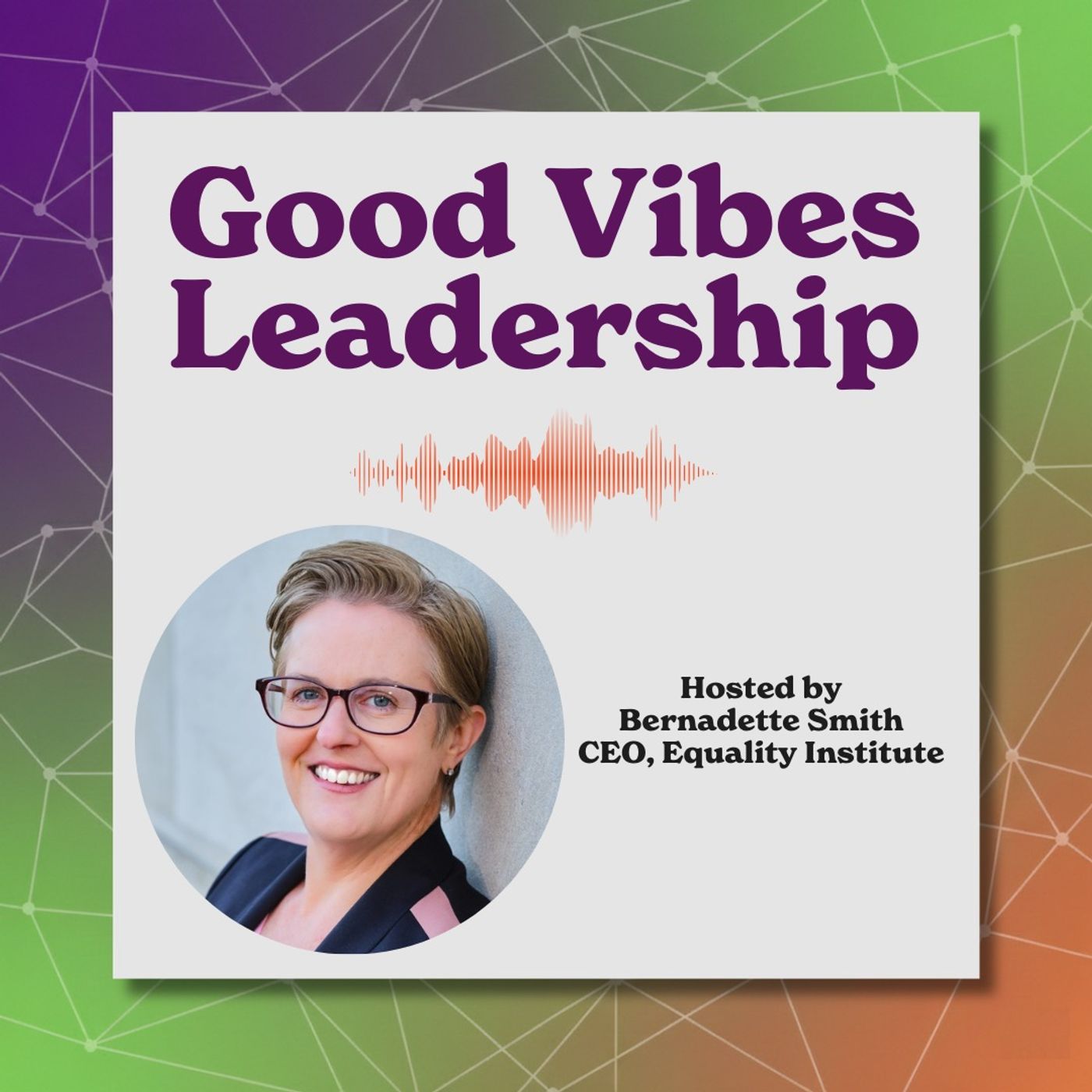
Good Vibes Leadership with Bernadette Smith
Bernadette Smith
The Art Of Imperfect Adulting
Amy Stone
Business as UNusual
BiCurean Consulting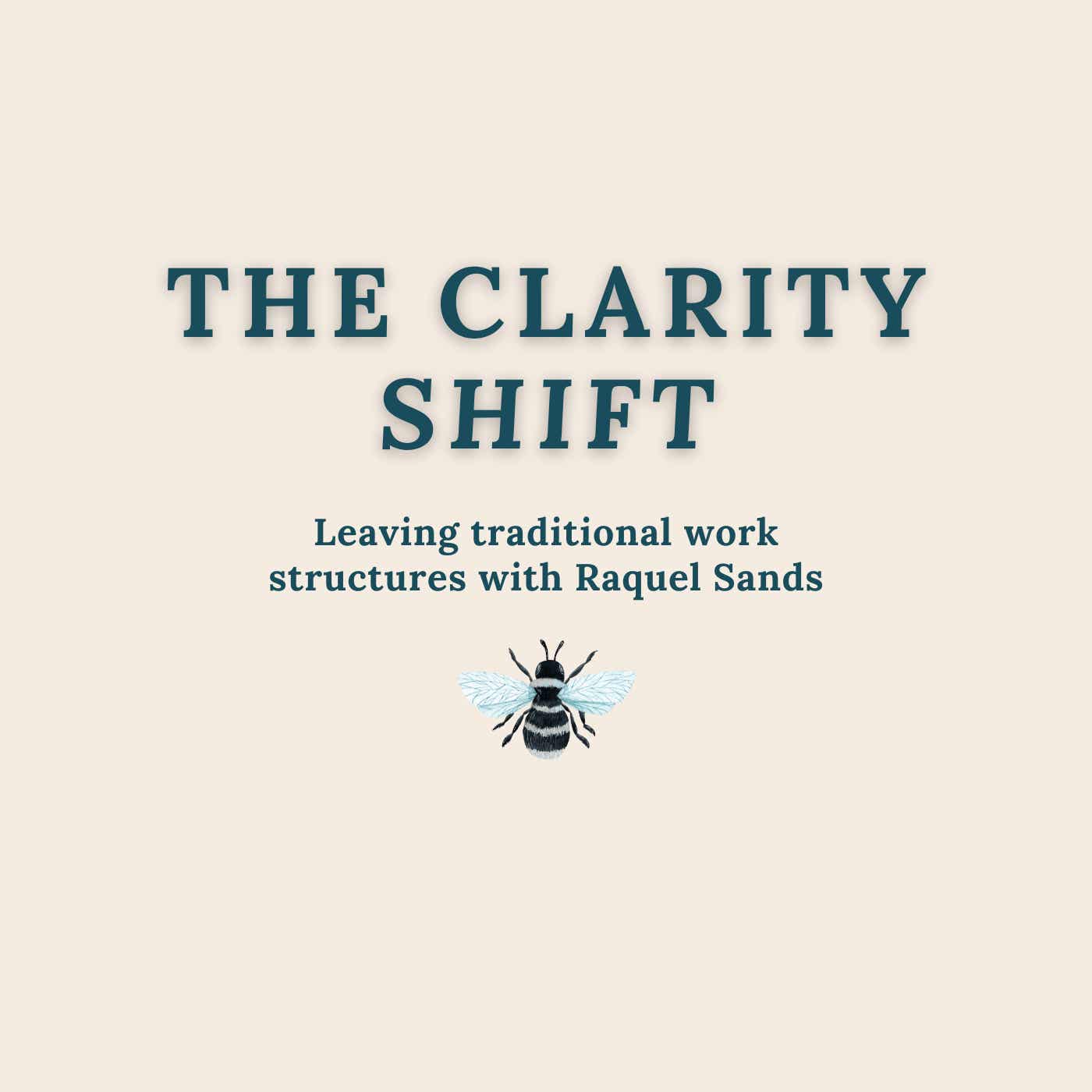
The Clarity Shift
Miriam Raquel Sands | Clarity + Alignment
Cozy Conversations with The Sister Project
Lauren Massarella and Michelle Anderson
Departure Menopause: Neurodivergent-Affirming & Weight-Inclusive Care
Melinda Staehling
The Empress and The Fool
Sarah Dittmore & Kaitlyn Gulock
The Good Pod
Jason Reed and Marissa Garza
Gratitude Geek | Business Education for Gen X Women Solopreneurs
Kandas Rodarte | Gen X Growth Coach for Women Solopreneurs
Mental Health Warrior & Neurodivergent Advocate
Amy D. Taylor | Mental Health Warrior & Neurodivergent Advocate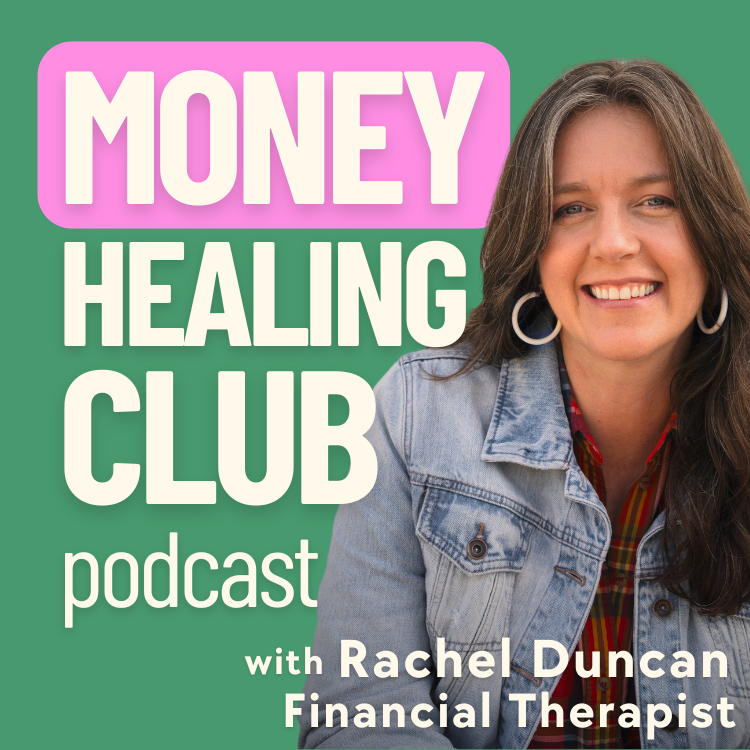
Money Healing Club Podcast
Rachel Duncan
noseyAF: Conversations about Art, Activism, and Social Change
Stephanie Graham
The RestLab with Jordan Maney
Jordan A. Maney
Was It Chance?
Alan Seales, Heather Vickery & Broadway Podcast Network
White Homework
Tori Williams Douglass, Benjamin Faye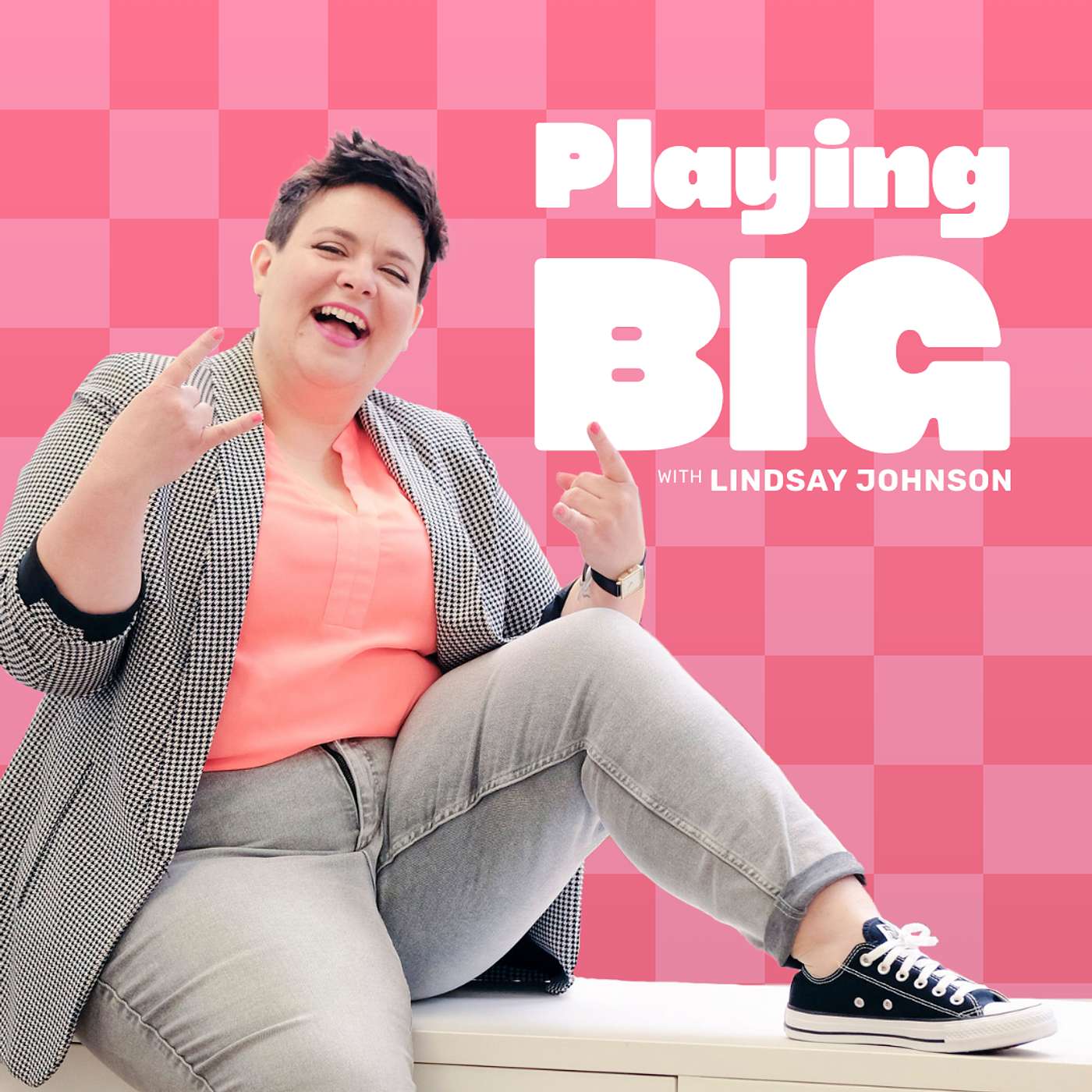
Playing Big with Lindsay Johnson
Lindsay Johnson, The Radical Connector



